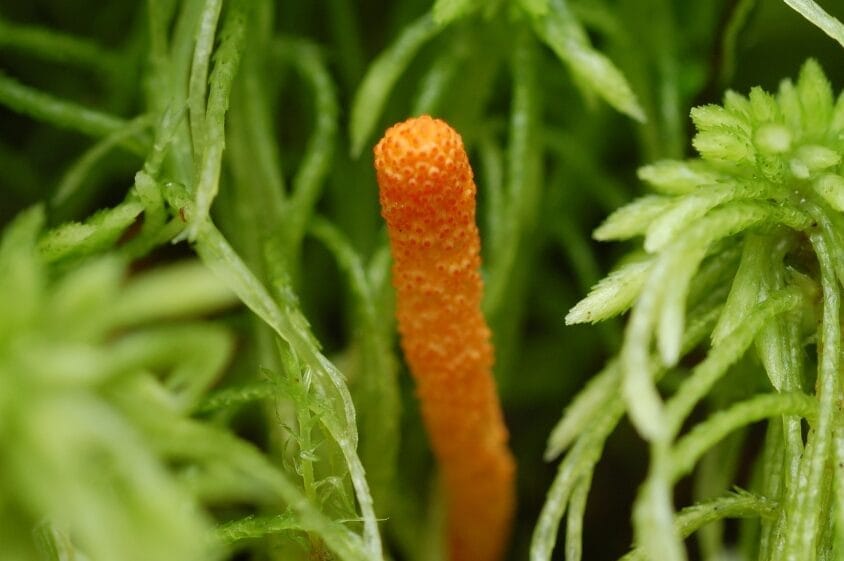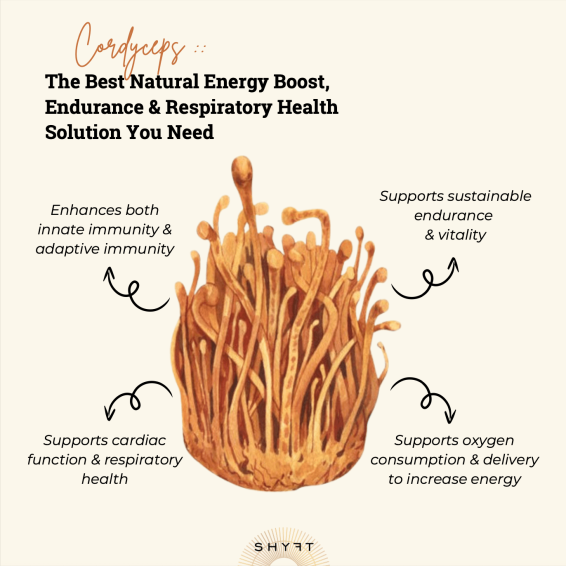
✦ Enjoy free shipping in the Netherlands for orders above €50
I’d been noticing it for a while: I’d wake up feeling groggy, even after a full night’s sleep. “Why?” I’d ask myself, wondering if it was just part of the routine grind. Still, I wanted more than just coffee to push through. That’s when I started my morning ritual of a Cordyceps hot drink — a simple recipe that’s transformed my mornings and days in ways I didn’t expect.
Cordyceps is a remarkable mushroom, known for supporting breathing, endurance, and even emotional balance. Originally used in traditional Tibetan and Chinese medicine, Cordyceps has become popular among athletes and those with active lifestyles for its natural ability to boost stamina. By supporting increased oxygen flow and enhancing ATP production (the energy currency of our cells), this mushroom is a nice addition if you’re juggling a lot — whether it’s at work, the gym, or in everyday life. Unlike coffee’s quick spike and inevitable crash, Cordyceps offers a steady, lasting energy that feels natural and balanced.
In one 2020 study, was shown that Cordyceps has the possibility of improving exercise performance, which could be associated with the increase in ATP production rather than the decrease in muscle fatigue during exercise. (Choi, E. et all (2020)

Since starting with Cordyceps, I’ve noticed a more even energy level throughout my day. But that’s not all; Cordyceps has broader benefits for anyone looking to improve their daily vitality and support long-term wellness:
Adding Cordyceps to your routine doesn’t have to be complicated. Here’s how you can start:

Since adding Cordyceps to my mornings, I’ve noticed a real difference—not just in my physical endurance but in my overall energy. It’s like my body is gradually shifting to a more sustainable state of resilience, leaving me feeling more capable and grounded. While coffee gives a quick surge, Cordyceps has offered me an energy that feels truly natural, and it’s one I look forward to each morning.
So, whether you’re training for a marathon, gearing up for a challenging day, or just looking for a boost that supports both body and mind, Cordyceps might be the perfect ally.
If you’re ready to make the shyft toward sustainable lasting energy, Cordyceps is the powerful addition to your routine.

Joana is a psychology student and wellness enthusiast. She explores the connections between nature, body, and mind, deepening our understanding of how the three can merge to support well-being.